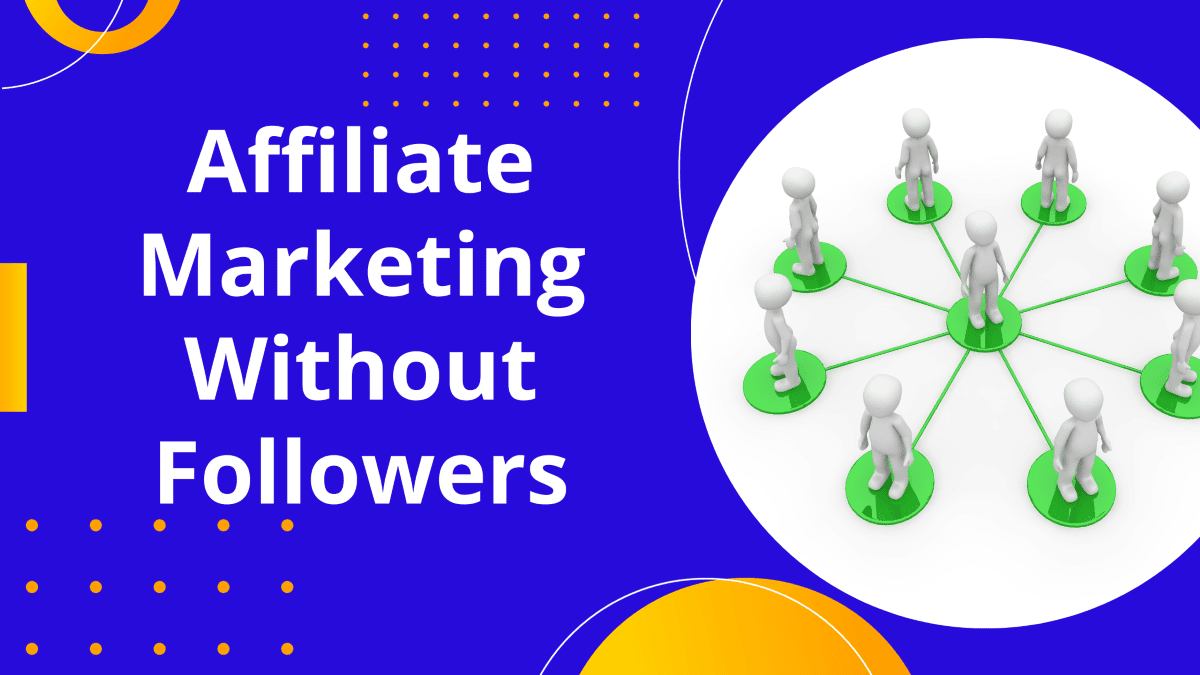
Hey there!
Have you heard about affiliate marketing? It’s a cool way to make money online. Many folks think you need tons of followers on social media to do it. But guess what? That’s not true!
You don’t need followers to make affiliate sales. You can do affiliate marketing without followers successfully!!
In this post, we’ll dive into the amazing world of affiliate marketing. We’ll see how you can make money with affiliate marketing without any followers or audience on social media platforms. Sounds fun, right?
Get ready to bust some myths and learn cool stuff!
Getting Started with Affiliate Marketing Without Followers
In the digital age, many believe having a vast following is the key to success.
While followers can be an advantage, they aren’t the sole path to triumph in affiliate marketing.
If you’re passionate, informed, and strategic, you can be successful at affiliate marketing without followers on social media platforms. Let’s delve deeper into this.
Do you need social media for affiliate marketing?
While social media is a powerful tool for promoting products, it’s not the only avenue for affiliate marketing.
Historically, affiliate marketing existed even before the rise of social networks.
Websites, newsletters, and direct emails have all played their part.
Think of social media as just one lane on a multi-lane highway.
Even if one route is crowded, there are many other paths to your destination.
Relying solely on social media can be limiting. Broadening your approach can lead to more sustainable and diverse sources of income.
You can use any of other platforms such as websites, blogs, videos, communities, and many more to do affiliate marketing without followers.
Can you be successful with affiliate marketing without followers?
Absolutely. Success in affiliate marketing business is more about strategy than sheer numbers.
Create Your Platform: A personal blog or affiliate website serves as a dedicated space for your content. It is the perfect place for you to promote affiliate products & use SEO strategies to drive organic traffic. A beginner friendly way to do affiliate marketing without followers.
Focus on Quality: Instead of targeting a vast audience, hone in on a smaller, interested one. Craft content that addresses needs and queries of your audience. Focus on delivering quality. Select the most relevant affiliate programs to earn money.
Leverage SEO: This is your tool to be discovered & mastered. By optimizing your content for search engines, you become more visible in the search results pages, resulting in more clicks and more views.
Engage Authentically: Affiliate marketing thrives on trust. Offer genuine insights & share first hand experiences, discuss pros and cons, and prioritize your audience’s needs over quick sales.
Continuous Growth: The digital landscape evolves. Adapt by staying informed and tweaking your strategies accordingly. Be it search engine algorithm updates, changing affiliate program structures, or launch of new affiliate programs. Keep an eye out and update your strategy with the changing industry.
In summary, while followers can give a head start, they aren’t the sole determinants of success. Dedication, quality, and adaptability can pave your way to success in affiliate marketing without followers.
Advantages of promoting affiliate links without social media
Building on our earlier conversation, while social media can be a good start, it shouldn’t be the only path in affiliate marketing. In fact, 64.48% of affiliate marketer get their traffic and audience via blogs and websites.
So, affiliate marketing without followers is a viable business model.
Venturing beyond these platforms brings forth a world of benefits. Let’s explore the advantages of not being solely tied to social media.
Ownership and Control
Having your own platform, like a website or blog, means you’re in the driver’s seat.
Social media platforms often change their rules.
Today’s favored technique might be tomorrow’s no-no. On your own site, you decide the content, the design, and the rules.
Evergreen Presence
Your posts on social media have a short lifespan. They get lost in the flood of daily posts.
But articles or reviews on your website? They’re always there.
With proper SEO, your content can attract visitors even years after being published. It’s like a garden that keeps bearing fruit season after season.
Building a Dedicated Audience
While social media gives breadth, your own platform gives depth.
Visitors on your website are often more invested. They’re there because they’re interested in what you offer, not just scrolling through.
This means they’re more likely to engage, subscribe, or make a purchase.
Better Monetization Opportunities
Social media platforms have limits. They might restrict certain affiliate links or promotional methods.
On your own site, you have a wider range of monetization options. Think ads, sponsored posts, and direct affiliate promotions – the sky’s the limit!
Direct Communication Channel
Email newsletters are golden. Once someone subscribes from your site, you have a direct line to them.
No algorithm to dictate who sees your content. Just you, your message, and an interested reader.
It’s personal, direct, and often more effective. Like many affiliate marketers, you can build email lists to drive traffic to your affiliate links.
Long-Term Stability
Let’s be real. Social media platforms come and go. Remember MySpace?
Having your own platform is like owning your house instead of renting it.
It’s stable. It’s long-term.
While it’s smart to utilize popular platforms, having your base ensures you’re always grounded, no matter where the digital winds blow.
In essence, while social media can be a great tool in the kit, it shouldn’t be the only one. Diversifying your approach ensures stability, growth, and a stronger relationship with your audience.
15 Effective Strategies To Be Successful With Affiliate Marketing Without Social Media Following
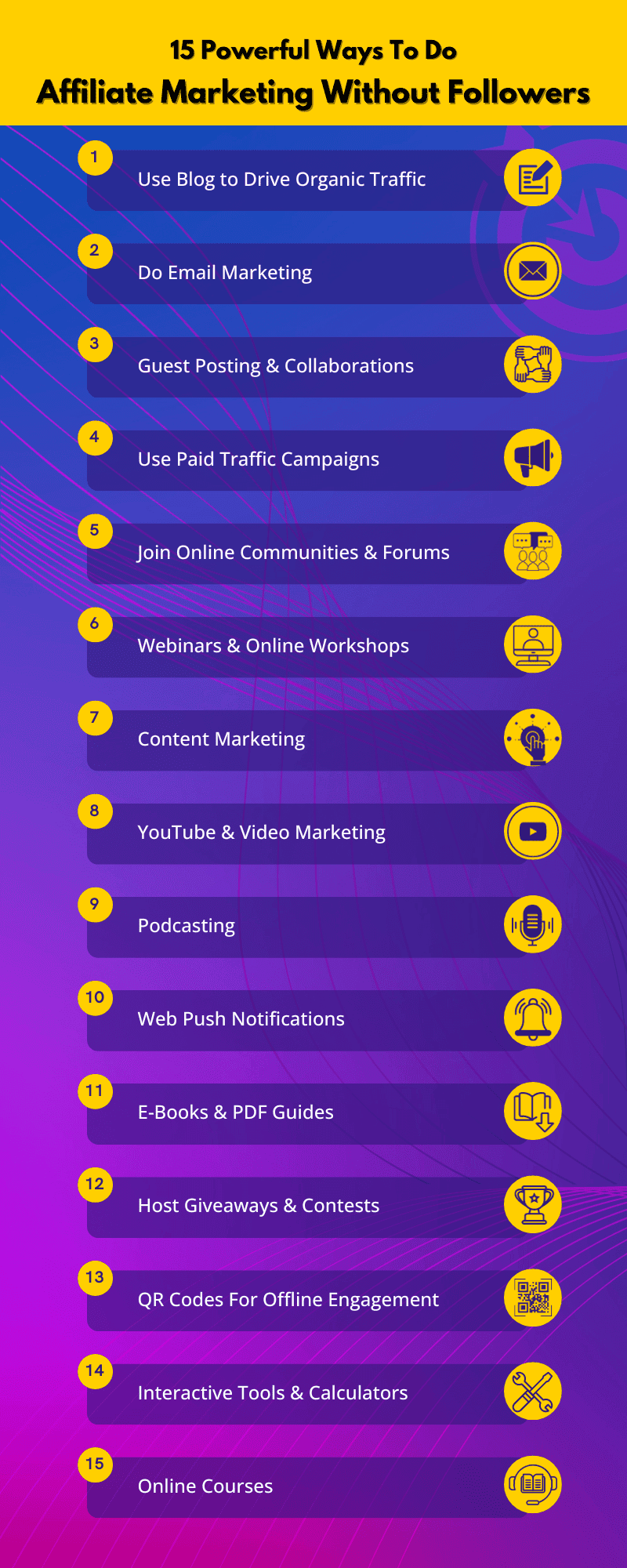
1. Create Blog and Use SEO to drive traffic
The power of search engines is undeniable. When people have questions, they turn to Google or Bing.
By optimizing your content, you ensure it gets seen by those seeking answers.
Tailor your content with relevant keywords, create high-quality backlinks, and maintain a user-friendly website. This way, your affiliate links will have organic visibility, driving consistent traffic without relying on social shares.
2. Utilize email marketing to promote affiliate products
Directly reaching an audience is the strength of email marketing.
Start by collecting emails through your website. Offer value – perhaps an eBook or a special guide.
Once you have a list, nurture it. Send out regular updates, product recommendations, include your affiliate link and affiliate offers.
This direct communication fosters trust, which is crucial for conversions.
3. Guest Posting & Influencer Collaborations
By collaborating with other websites or blogs in your niche, you gain access to their audiences.
Write guest posts, offering value and subtly integrating your affiliate links.
It’s not just about selling but sharing knowledge. This method builds credibility and broadens your reach without needing your own following.
4. Use paid traffic campaigns
Paid campaigns, like Google Ads, can be a boon. Here, you target specific demographics and only pay when someone clicks.
This ensures your affiliate products reach an audience genuinely interested, giving a higher chance of conversion.
Plus, with retargeting, you can remind those who’ve shown interest before.
5. Join relevant online forums and communities
Places like Quora, niche-specific forums, and even certain Reddit communities are gold mines.
Engage authentically. Answer questions, share insights, and only when relevant, introduce your affiliate products.
The key is to be helpful first, promoting second. This builds respect and authority in these spaces.
6. Webinars and Online Workshops
Hosting educational webinars showcases expertise. Choose topics related to your affiliate products.
Through these sessions, provide immense value. At the end, introduce your audience to relevant affiliate products.
This approach paints you as an authority, making people more inclined to consider your recommendations.
7. Content Marketing
Content is king in the digital world. Dive deep into topics around your affiliate products.
Create pillar content that serves as comprehensive guides, then surround these with cluster content—smaller articles addressing subtopics.
This approach boosts SEO, attracts organic traffic, and subtly guides readers to explore your affiliate products. Also, regularly update content to keep it fresh and relevant.
8. YouTube & Video Marketing
While images say a thousand words, videos convey stories.
Start by identifying questions your target audience asks. Produce tutorials, reviews, or informational videos addressing these queries.
Consistent posting, clear CTAs, and engaging thumbnails can increase visibility.
Encourage viewers to check out the description, where your affiliate links can be seamlessly integrated.
9. Podcasting
Audio content is on the rise. Identify niche-specific gaps that your podcast can fill.
Invite industry experts for interviews, making episodes more enticing.
Over time, as trust builds, introduce listeners to affiliate products that genuinely add value. Promote episodes on various podcast directories to boost reach.
10. Web Push Notifications
It’s like having a direct line to your audience’s devices. These notifications, when used sparingly, can alert subscribers about exclusive deals or fresh content.
Segment your audience to ensure tailored, relevant alerts. This can lead to higher engagement and, subsequently, conversions.
11. E-books & PDF Guides
An in-depth e-book can establish you as an expert. Pick topics closely aligned with your affiliate products.
For instance, if promoting kitchen gadgets, an e-book about ‘Easy Cooking Techniques’ can subtly introduce these tools. Use attractive designs and interactive elements, such as clickable links, enhances user experience.
12. Host Giveaways or Contests
Harness the power of excitement. Align giveaway prizes with your affiliate niche, ensuring relevance.
Promote these contests through partnerships or even on niche-specific forums. As participants engage, introduce them to the broader array of your affiliate offerings.
13. QR Codes for Offline Engagement
Merge the digital with the tangible.
Events, printed materials, or even storefronts (if you have one) can feature QR codes.
Make the landing page they link to engaging—maybe a special discount on an affiliate product or a valuable resource guide.
14. Interactive Tools or Calculators
Interactive tools enhance user engagement.
For instance, if you’re in the home decor niche, offer a room planning tool. Embed affiliate product links as suggestions within these tools, ensuring users have direct access to buy or learn more.
15. Online Courses
Education sells. Design a course that not only educates but also offers solutions.
Introduce tools or resources (your affiliate products) that can aid learners in their journey. Platforms like Udemy also allow instructors to promote affiliate links in supplementary materials.
Building Trust Without Audience
In our digital era, while social media reigns supreme, it’s not the only trust-building tool.
Believe it or not, establishing credibility without a massive social following is achievable and often more authentic.
Remember, trust is the cornerstone of any successful affiliate marketing venture.
Without a prominent social presence, you might wonder: how do you foster this trust? Here’s the secret: it’s about genuine value, transparency, and putting your audience first – the secret to finding success in affiliate marketing without followers.
Importance of Transparency
Be upfront about your affiliations: Clearly state when you’re using affiliate links. This openness fosters respect.
Educate about affiliate partnerships: Share with your audience why you chose a particular product or service. Authenticity wins every time.
Address concerns proactively: If a product has both pros and cons, mention them. This balanced approach solidifies your reliability.
Using Testimonials and Reviews
Showcase real user feedback: Display testimonials from users who’ve benefited from the affiliate products.
Encourage feedback: Actively seek out reviews. Positive or negative, they add credibility.
Leverage third-party review sites: If your affiliate product is on platforms like Trustpilot or Yelp, use these external validations to your advantage.
Offering Genuine Help and Solutions
Answer questions earnestly: If a visitor has a query or concern, address it. This isn’t just customer service; it’s relationship building.
Provide value first: Before introducing any affiliate link, ensure you’re offering tangible solutions or information. The sale is secondary.
Engage beyond sales: Create resources, guides, or tools that assist your audience even if there’s no direct financial gain for you.
Conclusion
Affiliate marketing without followers might sound daunting, but as we’ve seen above, you can use many different channels to promote your affiliate links and earn those affiliate commissions without using social media.
From mastering SEO to harnessing the power of local, in-person connections, success is not tied to likes or shares.
It all boils down to trust. Building and nurturing this trust becomes the bedrock of your affiliate journey.
By offering genuine value, showcasing transparency, and always putting the audience first, you pave the way for a loyal community, even without the backdrop of social media.
Remember, every tool, strategy, or platform has its place. But at the heart of it all is the simple, timeless principle: be authentic, be helpful, and success will follow.
Keep pushing forward, keep adapting, and here’s to your affiliate marketing success!


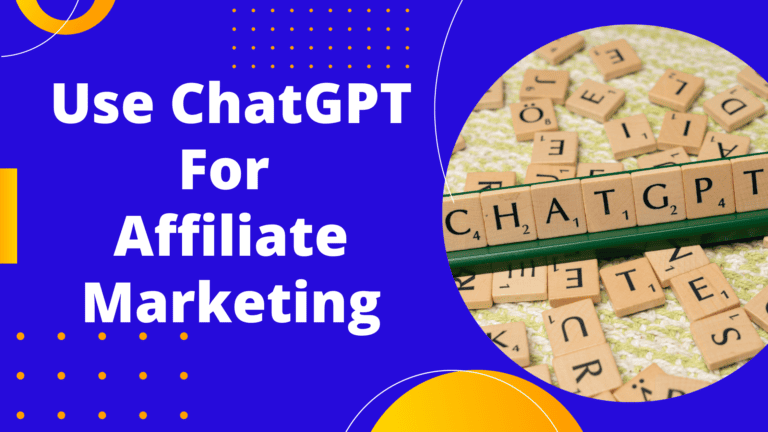

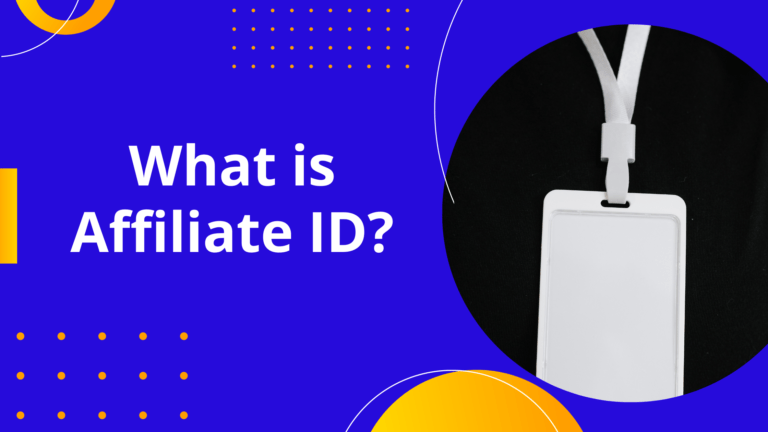
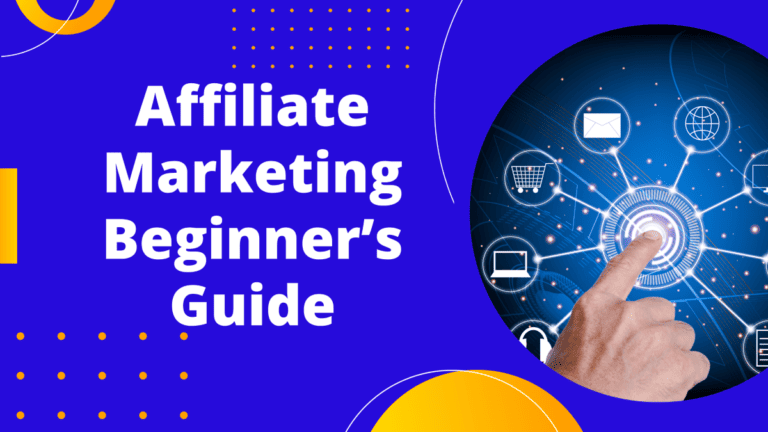
![Make Money with Affiliate Marketing Without a Website [2023]](https://www.parulraj.com/wp-content/uploads/2023/09/Aff-Mkt-Without-website-feature-image-768x432.png)